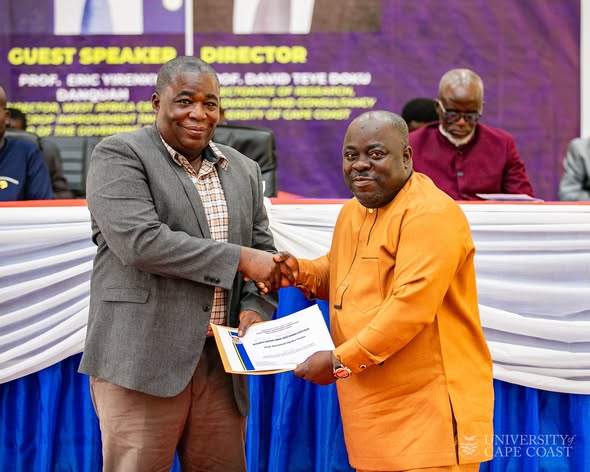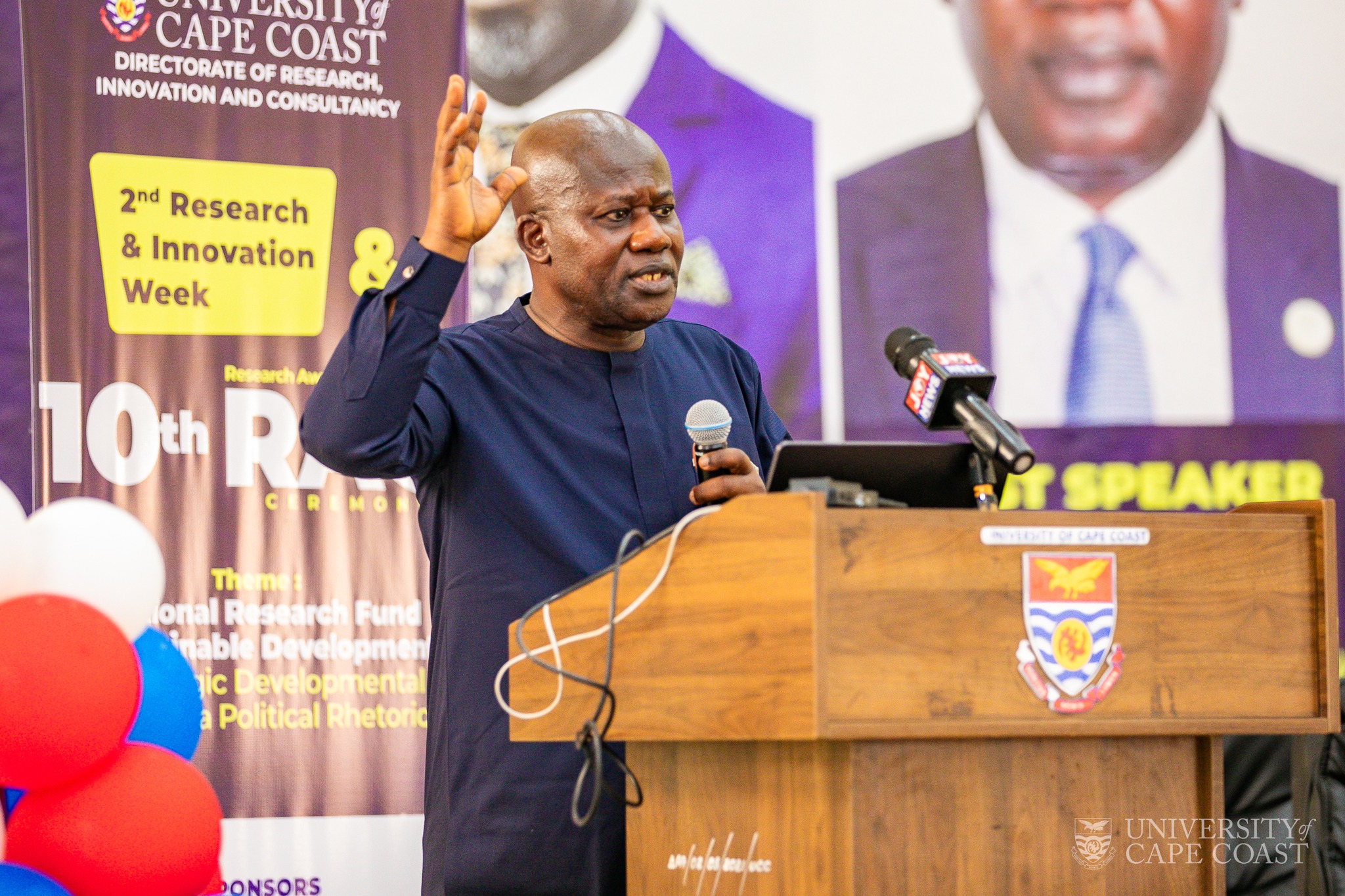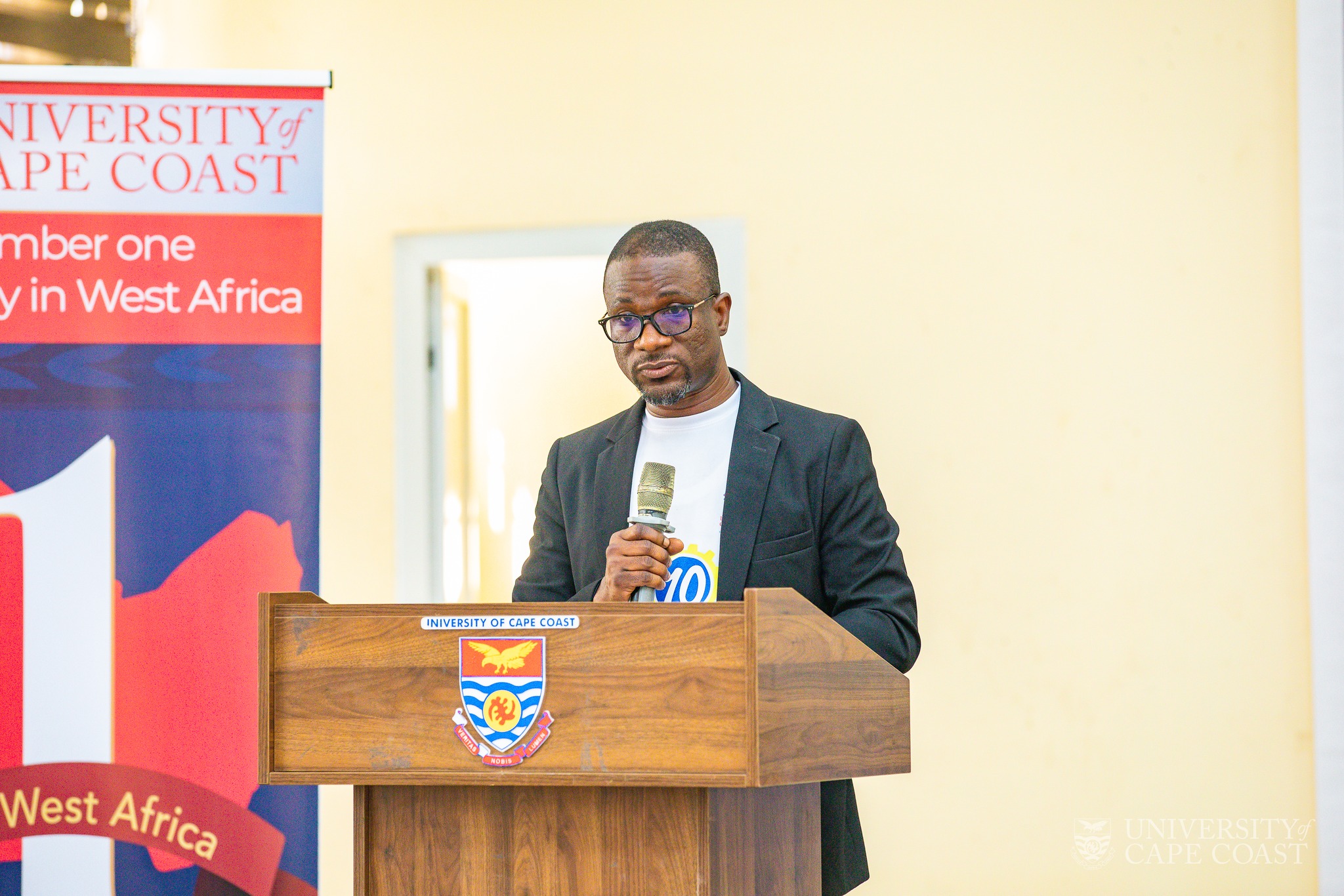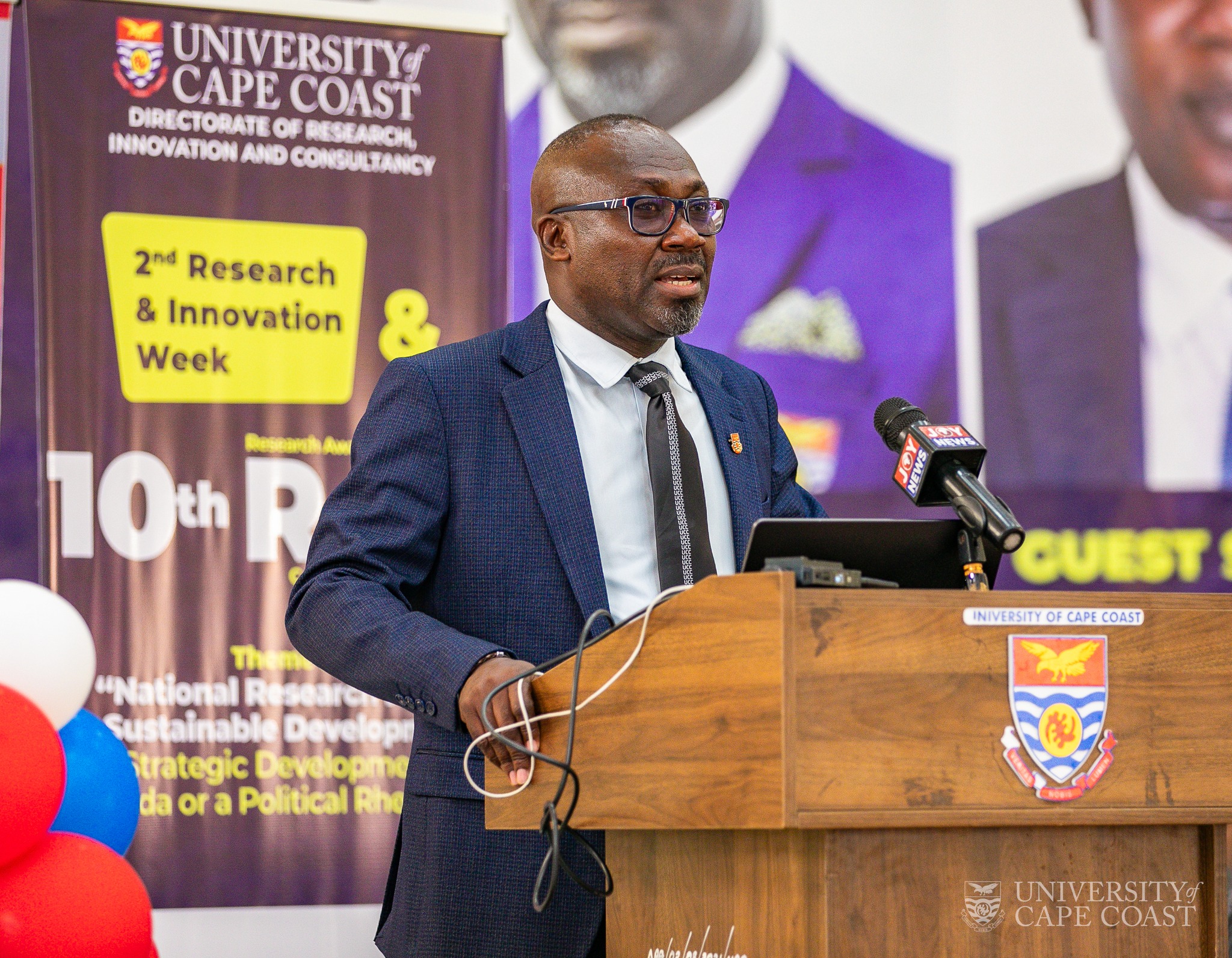The University of Cape Coast (UCC), through the Directorate of Research, Innovation and Consultancy (DRIC), has organised the 10th Research Awards and Grants (RAG) ceremony to support quality research and encourage research excellence and innovation amongst faculty.
The ceremony, held at the School of Graduate Studies Auditorium, was aimed at intensifying research engagement as a core mandate, enhance the quality of research output, publicise the university’s research focus and findings and share recommendations with industry players and policy makers, and other users and beneficiaries of the outcomes of research.
At the event, a total of 43 faculty members were given Grants awards under the Research Support Grant (RSG) category, with seven (7) awards conferred under the Best Research Award (BRA) category. The awardees directly contributed to the University of Cape Coast's sterling performance in the 2024 Times Higher Education (THE) World University Rankings (WUR).
Speaking at the event, the Special Guest for the occasion, Professor Eric Yirenkyi Danquah, Chairman of the Ghana National Research Fund (GNRF), underscored the need for a sustainable research fund towards national development.
He stated that, owing to inequalities in the world, Ghanaian scientists and other researchers would find it difficult to access funding that would enable them to conduct research to tackle both local and global issues.
“Therefore, it is important for Ghana to fund its own scientists and researchers so that they can develop African solutions to African problems,” said Prof. Danquah, who is also the Founding Director, West Africa Centre for Crop Improvement (WACCI).
Speaking on the theme: “National Research Fund for Sustainable Development: A Strategic Developmental Agenda or a Political Rhetoric”, he stated that a sustainable research fund was important since no one was going to fund researchers to research to solve Ghana’s problems, saying, “as a nation, we need to have the capacity to fund our research”.
From the foregoing, he said the operationalisation of the national research fund with a seed of GH¢50 m had come at the opportune time to enable scientists to access funding for their research work.
“At the moment, the research fund with a seed grant of GH¢50m and 0.5 per cent of the national budget is a great start for us as a country because it is very historic,” he stressed and further commended the government for putting together the fund’s governing board to oversee its operations.
He indicated that the fund was considering opportunities for accessing additional funding so that they could hit the ground running, adding, “according to the Malabo declaration, African governments are expected to put one per cent of Gross Domestic Product (GDP) and not 0.5 per cent of national budget into research”.
To this end, he called for the revision of the Ghana National Research Fund Act established under Act 1056 in 2020 to pave the way for one per cent of GDP to be paid into the fund to enhance research works, urging the government to take steps towards reviewing the Act.
Also, he said there was a need for work to be done on the Legislative Instruments (LIs) for approval by Parliament so that the fund would be governed by rules and regulations, stressing, “This will not allow people to use their heads in making decisions relating to the research fund”.
He used the occasion to challenged " the Ghana Tertiary Education Commission (GTEC) to sit down and work on rankings with universities in Ghana at the level of Departments so that we know that when you want to do AI in agronomy so as to identify collaborators easily."
Prof. David Teye Doku
For his part, the Director of DRIC, Prof. David Teye Doku, said over the past five years, UCC had witnessed remarkable growth in both the quality and quantity of its research outputs.
"Faculty and researchers have continued to publish in highly ranked, credible journals, contributing to global scholarships while addressing local and regional challenges," he added.
He announced that UCC had filed a patent application fir organic pesticide technology, secured copyright protection for two unique software applications, and was currently evaluating four inventions for their intellectual property potential and market viability, saying: "This is a demonstration of our contribution to national development."
Prof. Doku underlined the need for the University to improve on its research infrastructure, ensure reliable Internet connectivity, provide modern computing resources and analytical software and expand state-of-the-art laboratories, describing them as enablers of world class research.
"A University's impact is only as strong as the ecosystem that supports its scholars. Faculty must also strive for research excellence, regardless of the effort required, and refrain from publishing in predatory outlets," he stated.
Prof. Denis Aheto
Chairing the event, the Acting Vice-Chancellor of the UCC, Prof. Denis Aheto, congratulated the awardees and encouraged them not to rest on their oars.
He added that UCC would continue to promote a conducive environment that supports cutting-edge research.
“This involves building new laboratories and revamping existing ones, as well as supporting our faculty with research support grants to augment their research funds,
enabling them to execute their research projects,” he explained.
He expressed optimism that faculty members would innovate to advance the nation’s development.
The ceremony brought together Vice-Chancellors, Pro Vice-Chancellors, Principals of Colleges of Education and Heads of health training institutions, among others,




